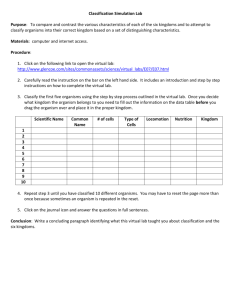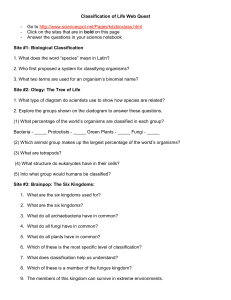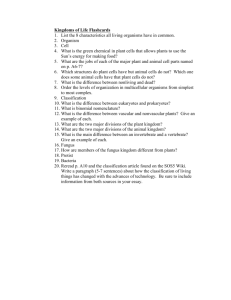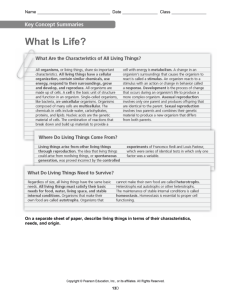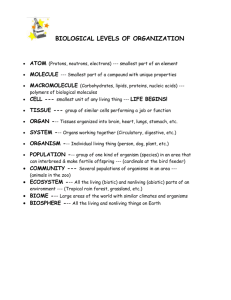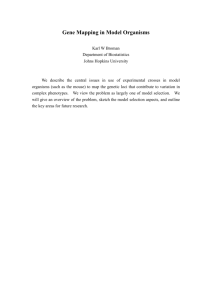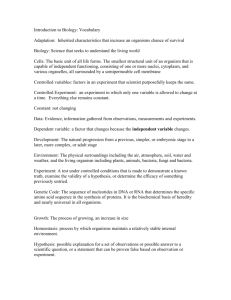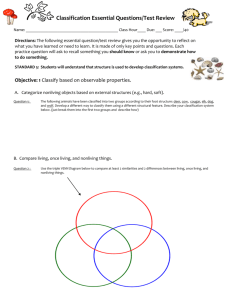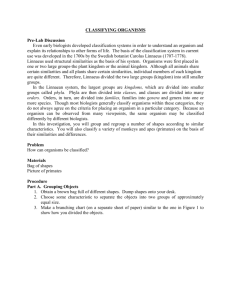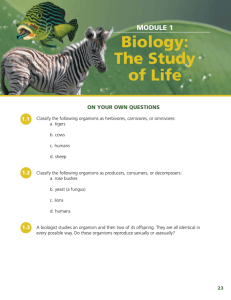Essential Questions
advertisement
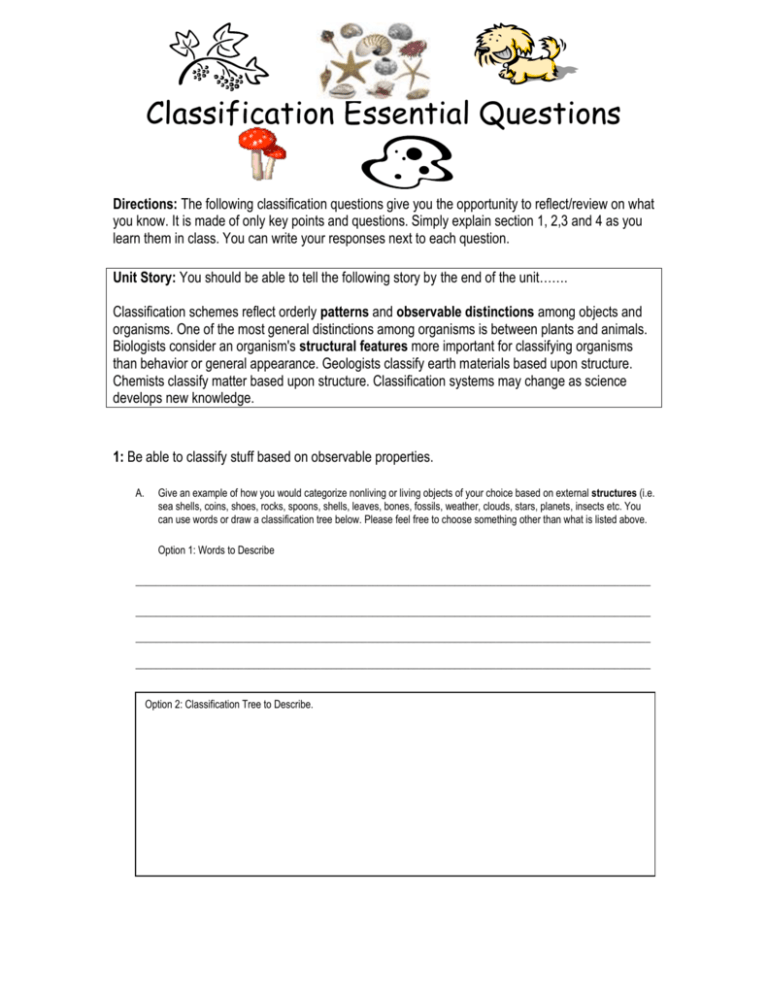
Classification Essential Questions Directions: The following classification questions give you the opportunity to reflect/review on what you know. It is made of only key points and questions. Simply explain section 1, 2,3 and 4 as you learn them in class. You can write your responses next to each question. Unit Story: You should be able to tell the following story by the end of the unit……. Classification schemes reflect orderly patterns and observable distinctions among objects and organisms. One of the most general distinctions among organisms is between plants and animals. Biologists consider an organism's structural features more important for classifying organisms than behavior or general appearance. Geologists classify earth materials based upon structure. Chemists classify matter based upon structure. Classification systems may change as science develops new knowledge. 1: Be able to classify stuff based on observable properties. A. Give an example of how you would categorize nonliving or living objects of your choice based on external structures (i.e. sea shells, coins, shoes, rocks, spoons, shells, leaves, bones, fossils, weather, clouds, stars, planets, insects etc. You can use words or draw a classification tree below. Please feel free to choose something other than what is listed above. Option 1: Words to Describe ____________________________________________________________________________________________________ ____________________________________________________________________________________________________ ____________________________________________________________________________________________________ ____________________________________________________________________________________________________ Option 2: Classification Tree to Describe. B. Describe the main differences between living, once living, and nonliving things. ____________________________________________________________________________________________________ ____________________________________________________________________________________________________ ____________________________________________________________________________________________________ C. Why is careful observation important in scientific classification. ____________________________________________________________________________________________________ ____________________________________________________________________________________________________ ____________________________________________________________________________________________________ D. Is there only one correct way/method of classifying things? Explain. ____________________________________________________________________________________________________ ____________________________________________________________________________________________________ ____________________________________________________________________________________________________ 2: Use and develop a simple classification system. A. Name a few basic rules for classification. _________________________________________________________________________________________________________ _________________________________________________________________________________________________________ B. Describe how the development of classification systems has been important in helping us learn about living organisms. (i.e. recognizing patterns in nature, detecting what is edible, dangerous etc.) (Brown Introduction to Classification Reading and Worksheet will help) _________________________________________________________________________________________________________ _________________________________________________________________________________________________________ _________________________________________________________________________________________________________ 3: Classify organisms using an orderly pattern based upon structure. A. Identify at least 5 types of organisms that are not classified as either plant or animal. _________________________________________________________________________________________________________ _________________________________________________________________________________________________________ _________________________________________________________________________________________________________ B. Arrange organisms according to kingdom by writing the kingdom name of each next to the organism below. (i.e., plant, animal, archaebacteria, fungi, protist). D Name Donkey Human Ancient bacteria Mushroom Crayfish Sea sponge Kingdom Name Daffodil Horse Salmonella Bird E. coli Jellyfish Kingdom Name Maple Tree Hydra Euglena Mold Amoeba Rose bush Kingdom C. Use the following classification key to identify the organisms below. Write the name of each next to each organism as you identify it using the dichotomous key below. Transparent = See through. The other words you should know from class E. Describe how early taxonomists Aristotle, and Carolus Linnaeus and John Ray attempted to classifiy living organisms (Remember the timeline?). Be sure to describe their system as well as any problems with their systems. What recent changes have taken place as a result of new technology? _________________________________________________________________________________________________________ _________________________________________________________________________________________________________ _________________________________________________________________________________________________________ _________________________________________________________________________________________________________ _________________________________________________________________________________________________________ _________________________________________________________________________________________________________ _________________________________________________________________________________________________________ _________________________________________________________________________________________________________ 4. What did you enjoy most about this unit (Classification)? _________________________________________________________________________________________________________ _________________________________________________________________________________________________________ _________________________________________________________________________________________________________ _________________________________________________________________________________________________________
